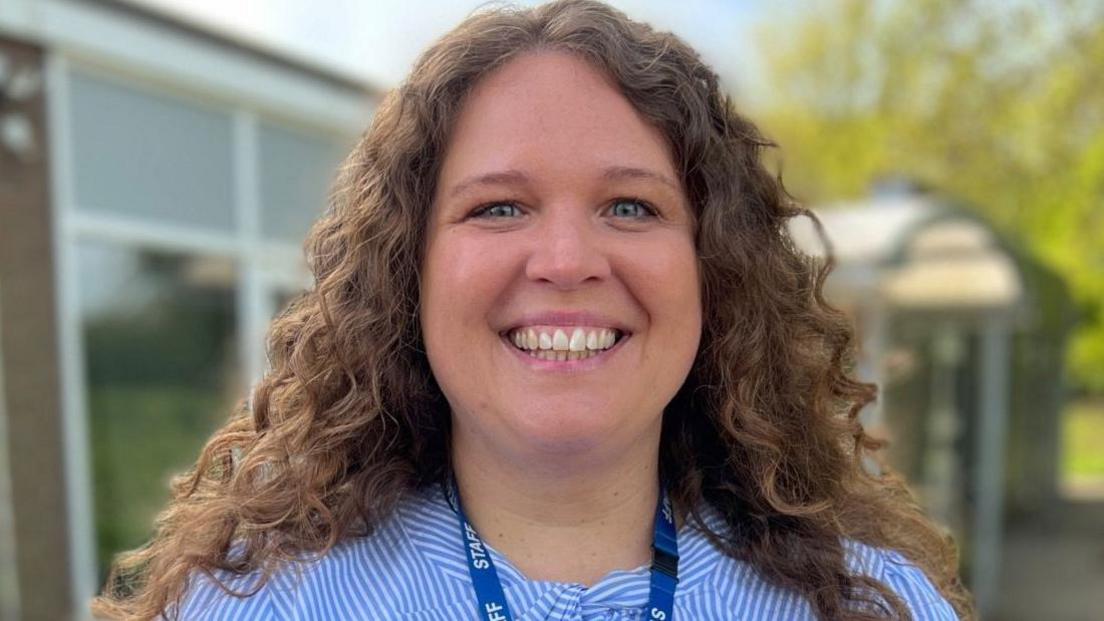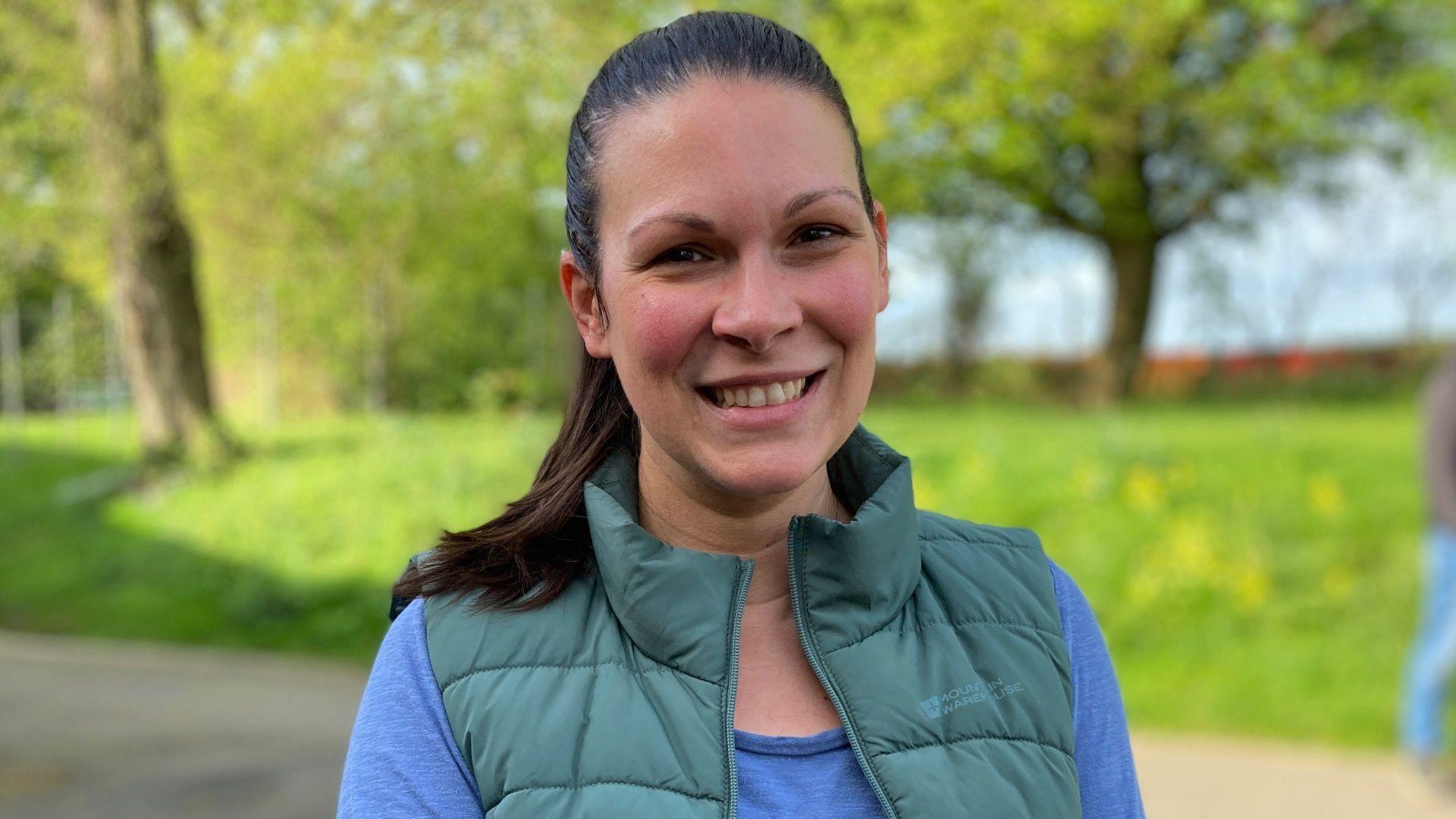Breakfast clubs 'indicative of society', says head

Head teacher Amy Wareham said it was in the school's interests to have pupils "who are ready to learn"
- Published
An Essex primary school head teacher says a national free breakfast club scheme for pupils is "indicative of society".
The clubs have been launched at 750 schools across England, providing thousands of parents with half an hour of free morning childcare as part of a trial that will run to July, ahead of a national rollout.
More than 20 schools in Essex are taking part in the pilot, including Newport Primary School near Saffron Walden.
Its head teacher, Amy Wareham, said it was "absolutely vital" for pupils to have a proper breakfast.
'Kick-start'
Newport Primary School already runs its own breakfast club, but the government scheme provides an additional 30 minutes of childcare, enabling the breakfast club to start earlier in the morning.
Borbala Anderson, who dropped her daughter Livia off, said the scheme would be "a huge help", especially once she returns to full-time work.
"I think it's very crucial for her to have a good breakfast because she's quite a picky eater," she said.
"Making sure she gets the right start for the day - cereal, a nice sandwich, some fruit - it can really kick-start a good day for her."

Mum Borbala Anderson said the breakfast club would be "a huge help"
Ms Wareham said that of the 160 pupils at her primary, about 30 had registered to use the new breakfast club, compared to five or six who used the school's own one.
"There was a demand for an earlier provision - we have some families that work in London, so they can get on the train and get into town," Ms Wareham said.
"I think it is indicative of society at the moment.
"Sadly, I think more and more families have two parents that are working, so it's a change and a shift in society and the way the families are set up, and it's come to schools to support families with that.
"In the middle of all that is a little boy or a little girl who has to come to school without any breakfast. That's not their fault, they don't do their weekly shop, they don't organise those sorts of things.
"How can you concentrate on your timetables, learning your phonics, doing your writing, taking part in a PE lesson if you've got an empty stomach?"
'Breaking down barriers'
Guidance sent to schools taking part in the pilot scheme said they would receive a set-up payment to cover equipment and material, but Ms Wareham told the BBC that her school had not received this.
"We need to be able to have that funding because we already have very stretched budgets," she said.
Her comments echoed those of Paul Whiteman, general secretary of the National Association of Head Teachers, who said prior to the rollout that funding for the breakfast club scheme "isn't sufficient".
But the government said the clubs had "an important role to play in the government's commitment to remove the stain of child poverty".
Secretary of State for Education, Bridget Phillipson, said: "Free breakfast clubs are at the heart of our Plan for Change, making working parents' lives easier and more affordable, while breaking down barriers to opportunity for every child."
Get in touch
Do you have a story suggestion for Essex?
Follow Essex news on BBC Sounds, Facebook, external, Instagram, external and X, external.
Related topics
- Published20 April
